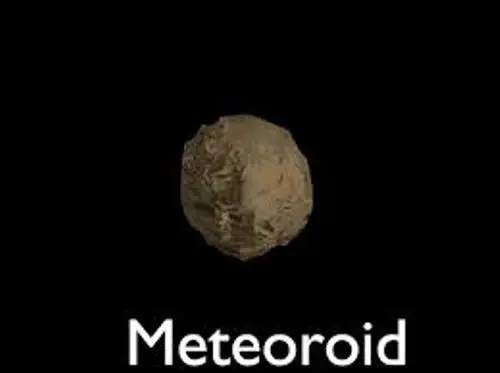

Scientists often theorize that a massive meteorite crash led to the dinosaurs becoming extinct. Most of them have found to be coated in frost. Meteorites are not necessarily ‘hot’ when they fall to the Earth. This is the only human injury ever reported from a meteorite impact. In 1954, a meteorite hit a woman named Ann Hodges in Oak Grove, Alabama. A meteorite has only struck a person once. However, contrary to popular belief, meteorites are not radioactive.ġ6. Most meteorites consist of iron-nickel metal and hence, they attract magnets. Never ask a meteorite its age!Ī meteorite can contain some of the oldest known rocks of the Universe.

If a meteorite has a greater diameter than 10 meters, it is classified as an asteroid. Meteors are believed to originate from minor planets of the Solar System, asteroids. No, really!Īstronomers have calculated that over 48 tons worth of meteor debris falls through Earth’s atmosphere every day. Meteorites land on the Earth almost every day! However, most of them end up falling in the oceans. The Chelyabinsk meteor that hit central Russia in 2013 had an impact so huge that the shockwaves caused by it were picked up by infrasound sensors on the other side of the world. The purchasing and selling of meteorites is illegal in South Africa while eBay lists over a thousand meteorites for online auction. Most meteorites are minuscule in size and too small to be seen with the naked eye. However, they’re most likely to fall on the tiny side. It is called the Hoba meteorite, and was found in 1920 in Namibia.ħ. The largest meteorite that has ever landed on the Earth’s surface is recorded to have an estimate mass of 60 tons. They are blisteringly fast.Ī meteor’s speed when falling toward the Earth can be up to 130,000 mph. They can be as tiny as a speck of dust or as big as a light aircraft! 5. A meteorite, then…?Ī meteorite is a piece of space debris that sometimes lands here on Earth through a high-speed plunge as a meteor. What’s a meteoroid?Ī meteoroid is a rocky debris floating in space which turns into a meteor as a result of friction between the air particles and the pressure in and around the Earth’s atmosphere. Meteoroid, meteor, and meteorite have different classifications according to their material state. Have you ever watched a meteor shower streak across the sky at night? When a meteor enters the Earth’s atmosphere it can glow even brighter than the planet Venus! Looking for some information about these otherworldly rocks? Here’s 18 fun facts about meteorites… 1.


 0 kommentar(er)
0 kommentar(er)
